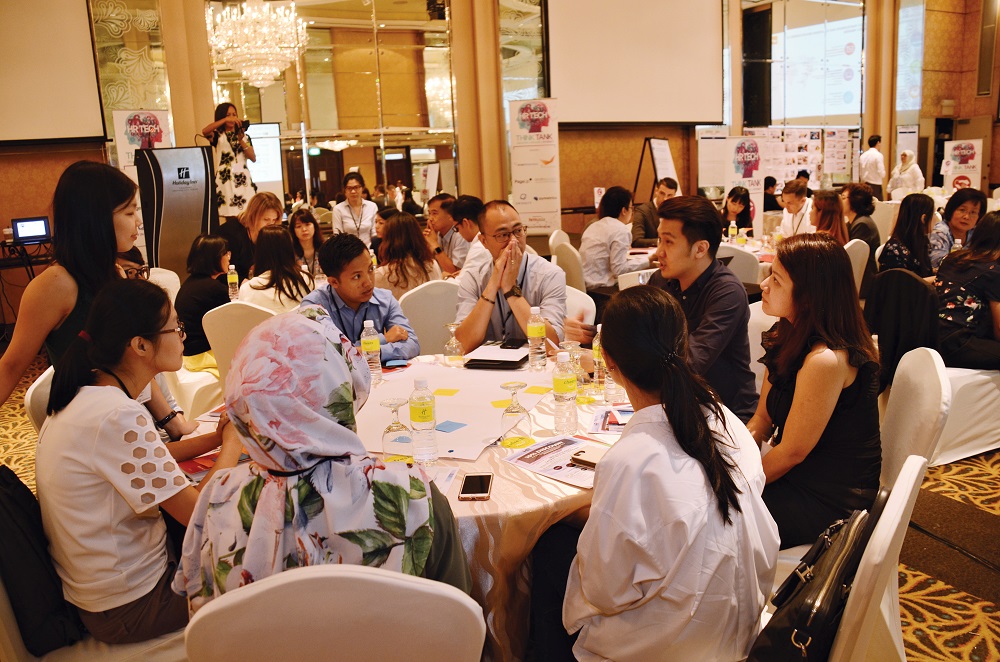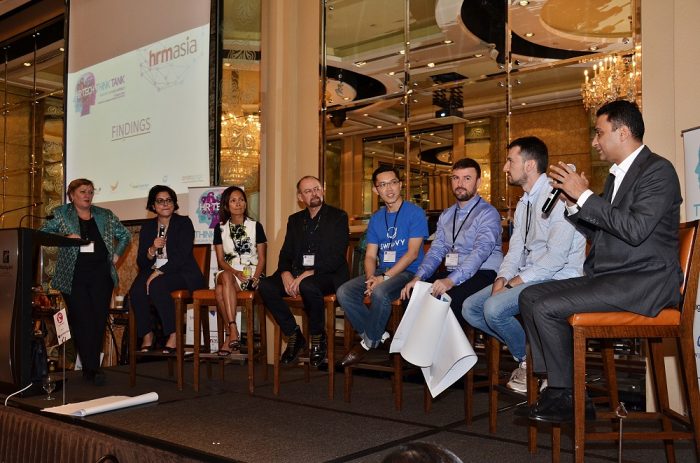Three things we learned at HR Tech Think Tank
- Melia Widjaja
- Topics: Asia-Pacific, HR Technology, News, Professional Development

Driven mostly by technology, the global workplace is facing an unprecedented change across multiple industries and sectors, and the HR profession is similarly set to undergo major upheavals.
While automation and robotisation are expected to make many routine job roles redundant, new jobs are predicted for non-routine and creative ones.
But despite the potential to become pervasive in the everyday working lives of employees across industries, the impact is unlikely to be uniform across the board.
Those tasked with planning and delivering future skills and capability requirements will be faced with key issues and questions in navigating the increasingly complex and rapidly changing HR landscape.
It becomes a critical priority as budgets are shifting and businesses are losing due to hiring inefficiency.
With that in mind, here are some of the key takeaways from HRM Asia’s HR Tech Think Tank, which took place on October 19.
1. HR still lags behind
In a hyper-connected world, HR is lagging in the uptake of technology. There is an urgent need for the profession to build its digital acumen, and for both top-down and bottom-up buy-in from organisations.
There is also a disparity in Asia, between the technology vision of organisations, and their effective adoption of technology.
Closing the gap will require ongoing education and a long-term approach that allows for integration across business functions.

2. Engagement is still about people and processes
Even in a technological age, it is important to remember to always put people first.
Organisations should be focusing their attention on optimising human capital, and putting employees at the heart of operational efficiency optimisation.
BI Worldwide’s General Manager Manav Batra says there is still no common understanding of what “employee engagement” actually is but everyone knows it is important.
Batra said that making sure that employees are engaged and in alignment brings out the best in an individual and an organisation, and technology should instead be leveraged to augment human capability.
3. Just like humans, machines have a point-of-view
Similar to humans with unconscious bias, machines can often have uncoded bias.
The output of a smart machine is still an opinion, and can only count on quantified data that is measured and handed over.
Thus, the machine’s worldview is limited and unable to account for things it cannot see.
US-based Futurist and Technology Commentator John Sumser says that since bias cannot be eliminated, it is pointless for employees to expect that their technology will always give them the “right” answers.
Instead, staff should look to get better at asking the right questions, he said.






